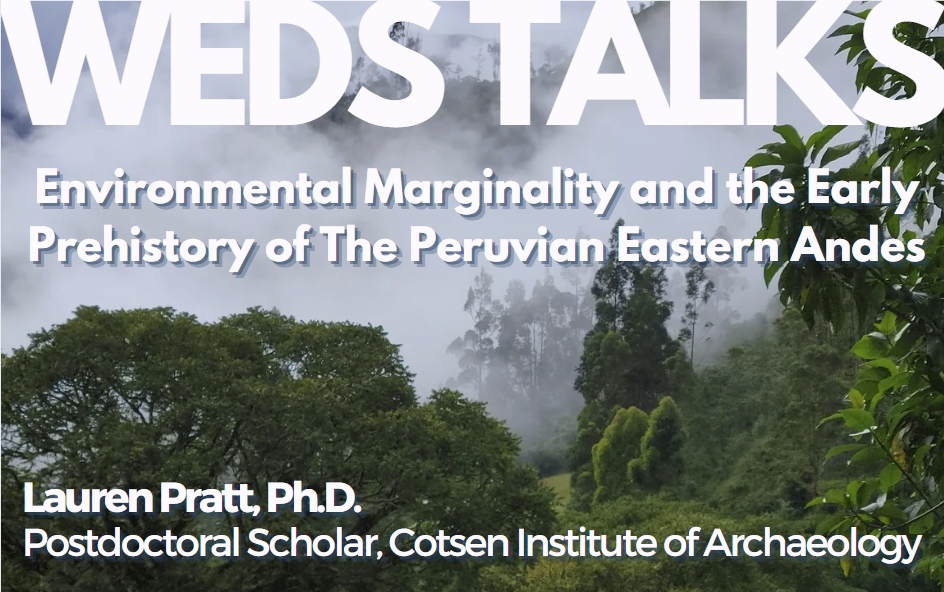Event: WEDS TALKS:Environmental Marginality and the Early Prehistory of The Peruvian Eastern Andes
Event Details

ABSTRACT: Archaeological models of human activity in the Peruvian eastern Andes prior to c. 1000 cal BP are enormously variable, ranging from near-total absence through selective or seasonal use to extensive local development and inter-regional exchange. Much of this disagreement is founded in competing evaluations of the environmental marginality of cloud forests and other eastern Andean environments for human occupation. As direct archaeological evidence of human activity from this place and time are scarce, evaluation of models has been difficult, relying largely on theory and indirect evidence from neighboring regions. In this talk, I present the results of the CARECH project, a multi-site archaeological survey and excavation initiative which offers insights into more than 4,000 years of human adaptation to, and modification of, eastern Andean environments, from Middle Holocene (c. 5,500 cal BP) foragers through the development of sedentary agriculturalism. Based on these results, the cloud forest appears to have been highly suitable for past human groups, who may also have modified the landscape to better suit their needs. In addition, I will discuss upcoming work in the cloud forests of southern Peru, designed to assess the role of the eastern Andes in facilitating highland-lowland interactions.
BIO: Lauren Pratt is a postdoctoral scholar at the Cotsen Institute of Archaeology. She received her doctoral degree from the University of Michigan in August 2024, with a dissertation titled "Human Ecology of the Early Prehistory of the Eastern Andes, Peru." She employs a variety of approaches, including human-behavioral ecology and niche construction, to understand human-environment interactions in the cloud forests and adjacent environmental settings at the intersection of South America's two defining landscapes: the Andes mountains and Amazon rainforest.


